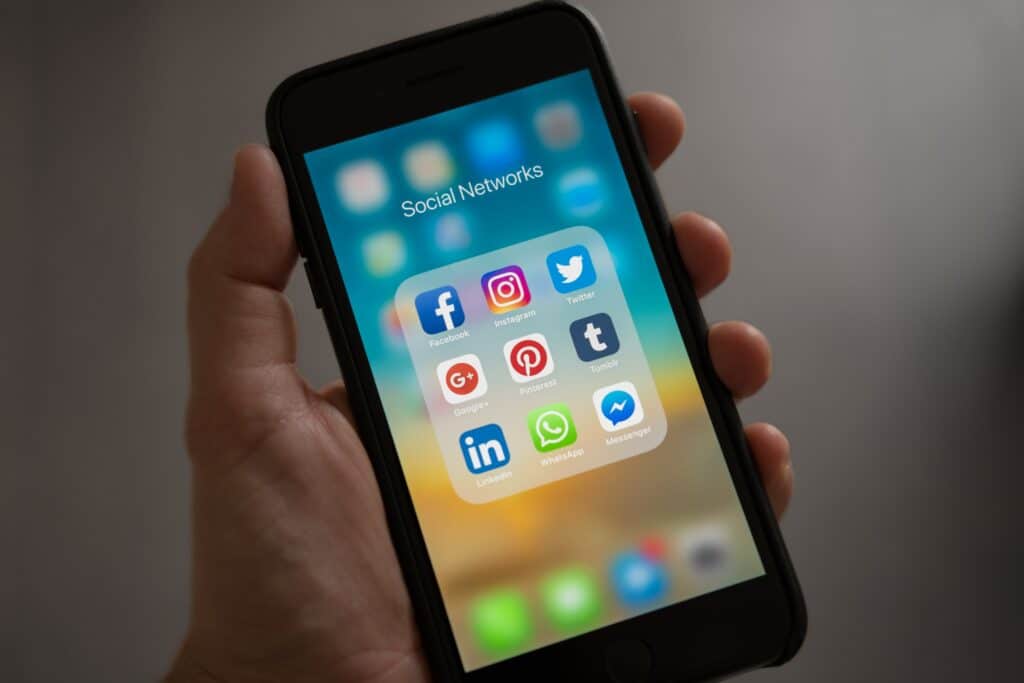Have you ever wondered if that small device you carry everywhere might be a wolf in sheep’s clothing?
Let’s face it, in this digital era, it’s not just about losing your phone; it’s about losing your identity.
On This Page:
- The Link Between Cell Phone Numbers and Personal Privacy
- The Risks Associated with Your Cell Phone Number
- How Your Social Media Could be Leaking Your Number
- E-commerce and Online Transactions: A Potential Trap
- Steps to Protect Your Cell Phone Number and Your Privacy
- FAQs
- Conclusion: Embrace the Power, Not the Peril
The Link Between Cell Phone Numbers and Personal Privacy
Why Your Cell Phone Number is More Than Just a Number
Your cell phone number is not just a string of digits. In the digital age, it’s a powerful key that unlocks your personal and financial information. A small slip, such as sharing your number unknowingly on a suspicious website, can lead to serious breaches of your privacy.
How Your Cell Number is Harvested for Data
Ever wonder how salespeople got your number? Most often, it’s through data harvesting. This practice involves collecting information from various sources, with your cell phone number often being the cherry on top. Your digital footprints make you an easy target for data miners who can obtain your number and use it in ways you can’t imagine.
The Risks Associated with Your Cell Phone Number
Identity Theft: A Modern-day Nightmare
Identity theft isn’t some abstract concept; it’s a real threat. Scammers and cybercriminals can use your cell phone number as a stepping stone to access your personal data, causing havoc in your life. They could impersonate you, make transactions, or even commit crimes in your name.
How Spammers and Telemarketers Use Your Number
Spam calls and messages can be a real nuisance, but have you ever considered the potential dangers behind them? More than mere annoyances, they can lead to privacy invasions and scams. Your number can land in the wrong hands and be used for phishing, fraud, and worse.
We love staying connected through social media, but it could be a double-edged sword. If you’re not careful, your number could leak through platforms like Facebook or Instagram. This leakage could lead to unwanted calls, spam, and more severe invasions of privacy.
Your ‘Friends’ Might Not Be the Only Ones Seeing Your Number
Ever got a random friend request from a stranger? That’s a red flag. Cyberstalkers and criminals can access your profile information, including your number, leading to a serious breach of privacy. Be careful who you accept as friends, and review your privacy settings regularly.
E-commerce and Online Transactions: A Potential Trap
Online Shopping: A Privacy Pitfall
Online shopping is convenient, but it also poses risks to your personal privacy. Sharing your cell number during transactions can expose it to potential cyber threats. Always ensure that you’re shopping from secure sites that protect customer data.
How Cell Numbers are Used in Frauds
Online scams are on the rise, and your cell number can be an unwitting accomplice. Scammers can use your number to trick you into revealing sensitive information or to commit fraud in your name. Always verify calls and messages, especially those involving money.
Steps to Protect Your Cell Phone Number and Your Privacy
Being Smart with Who Gets Your Number
Being selective about who you give your number to is the first line of defense. It’s okay to say no when businesses ask for your number. Use alternative contact methods when possible, like email or messaging apps.
Online Practices to Safeguard Your Number
Browsing the internet? Be careful. Don’t provide your cell number unless it’s necessary and you trust the website. Additionally, consider using two-factor authentication and virtual numbers to add an extra layer of protection.
FAQs
1. How can I protect my cell phone number? It’s all about being vigilant. Don’t share your number unnecessarily, and always verify who you’re giving it to. Use two-factor authentication and virtual numbers for additional security.
2. How can my cell phone number lead to identity theft? Your cell phone number can serve as a gateway to your personal information. If it falls into the wrong hands, criminals can use it to impersonate you, access your accounts, or commit fraud in your name.
3. Is it safe to give out my cell phone number on social media? Not really. It’s best to limit the sharing of your cell number on social media platforms as it can easily fall into the wrong hands, leading to potential privacy breaches.
4. Can my cell phone number be used in online scams? Yes, scammers can use your cell phone number to trick you into revealing sensitive information or commit fraud. Always verify any suspicious calls or messages.
5. Can I use a virtual number for online transactions? Absolutely! A virtual number is a great way to protect your actual cell phone number during online transactions. It adds an extra layer of security and protects your personal privacy.
6. What should I do if my cell phone number has been compromised? If you suspect your number has been compromised, contact your service provider immediately. You might need to change your number and check all your accounts for suspicious activity.
Conclusion: Embrace the Power, Not the Peril
Your cell phone number holds a lot of power, but it doesn’t have to be a threat to your personal privacy. By understanding the risks and implementing smart practices, you can keep your number and your privacy secure.
Don’t let your cell number be the weak link in your armor of personal privacy. Remember, your cell phone number is a part of your identity – protect it like you would protect any other vital personal information.



